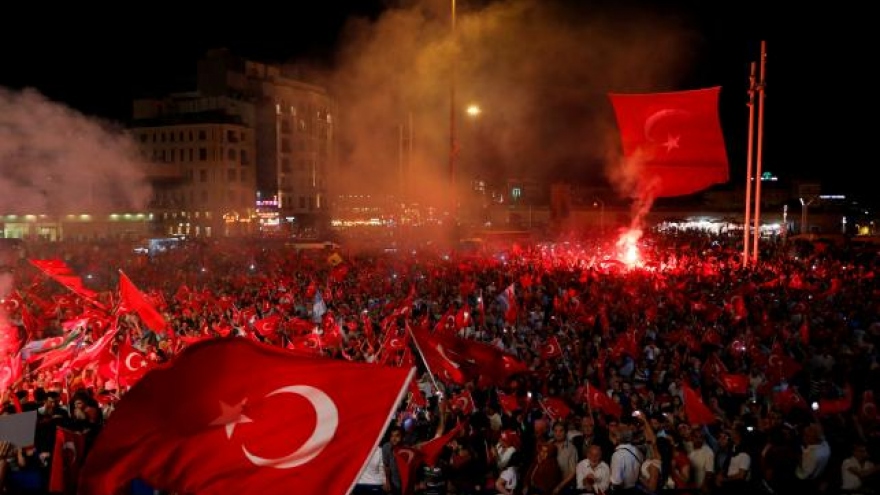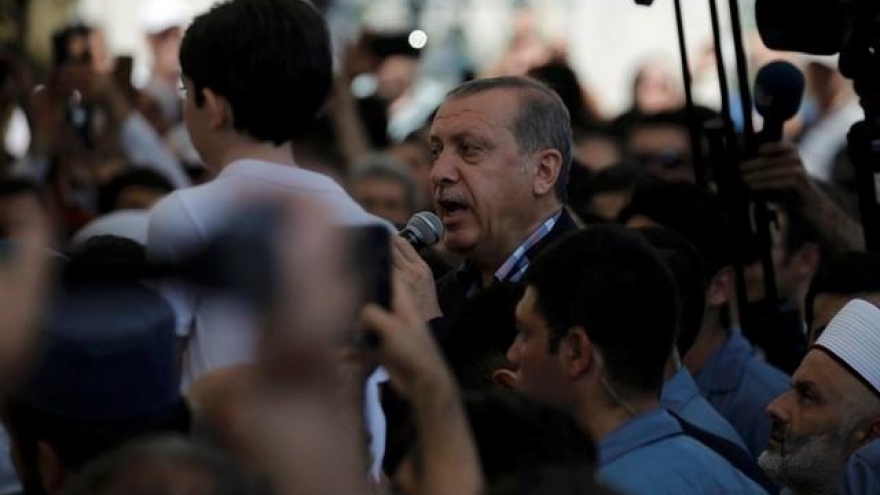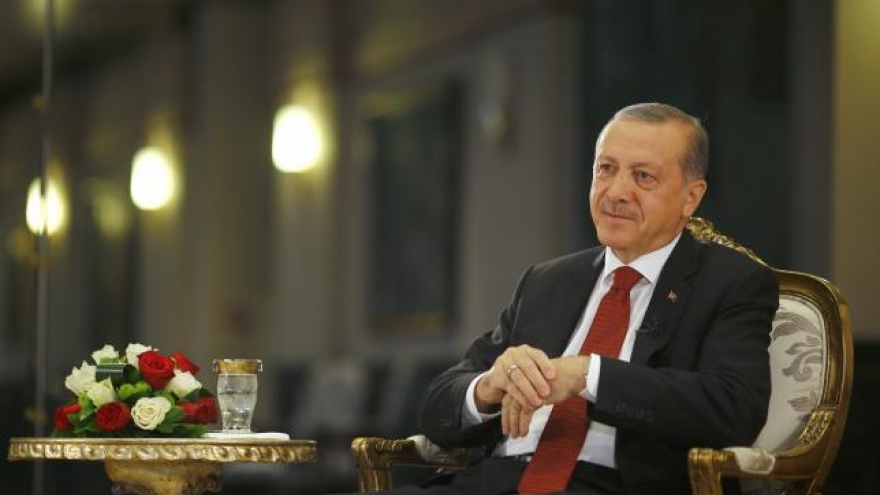Turkey's Erdogan shuts schools, charities in first state of emergency decree
President Tayyip Erdogan tightened his grip on Turkey on July 23, ordering the closure of thousands of private schools, charities and other institutions in his first decree since imposing a state of emergency after the failed military coup.
 |
A restructuring of Turkey's once untouchable military also drew closer, with a planned meeting between Erdogan and the already purged top brass brought forward by several days.
The schools and other institutions are suspected by Turkish authorities of having links to Gulen, who has many followers in Turkey. Gulen denies any involvement in the coup attempt in which at least 246 people were killed.
His nephew, Muhammed Sait Gulen, was detained in the northeastern city of Erzurum and will be brought to the capital Ankara for questioning, Anadolu reported. Among possible charges that could be brought against him is membership of a terrorist organization, the agency said.
It is the first time a relative of Gulen has been reported detained since the failed coup.
Turkey has also captured a key aide to Gulen, a presidency official said. Halis Hanci, described as the cleric's right-hand man, apparently entered Turkey two days before the abortive coup, the official told reporters.
Hasan Karakus, the pilot who bombed the special forces command in Ankara and killed 42 police officers, was also caught in Turkey, said the official.
Critics of Erdogan fear he is using the abortive coup to wage an indiscriminate crackdown on dissent. The foundations targeted include, for example, the Association of Judges and Prosecutors (YARSAV), a secular group that criticized a recent judicial law drafted by Erdogan's Islamist-rooted AK Party.
Banners were hung on road bridges, subways and advertising boards around Istanbul with the words "Hakimiyet Milletindir" (The People Rule). Public buses and some private cars were adorned with red Turkish flags.
Public transport in Istanbul has been free since Erdogan called people to the streets and will continue to be so until July 24, when the main opposition CHP is staging a "democracy rally" in Istanbul's central Taksim square, to which it has also invited supporters of the ruling AK Party, to condemn the coup attempt.
Turkey does not plan to extend emergency rule beyond a period of three months following the failed coup, but will do so if necessary, Prime Minister Binali Yildirim said.
Turkey plans to dismantle the special presidential guard, he added.
In his decree, published by the Anadolu state news agency, Erdogan also extended to a maximum of 30 days from four days the period in which some suspects can be detained. It said this would facilitate a full investigation into the coup attempt.




